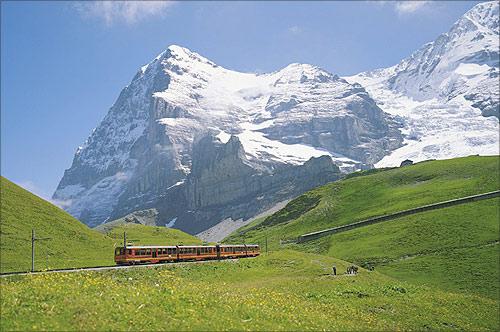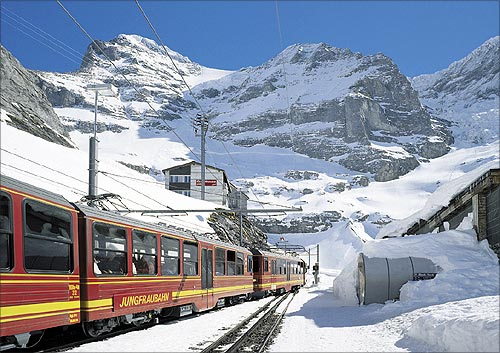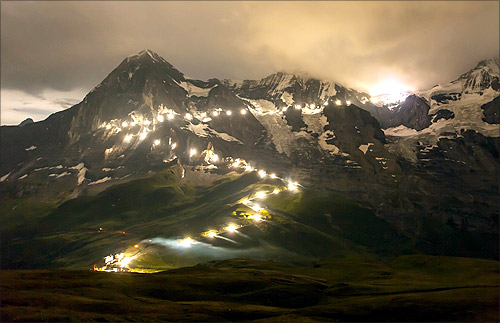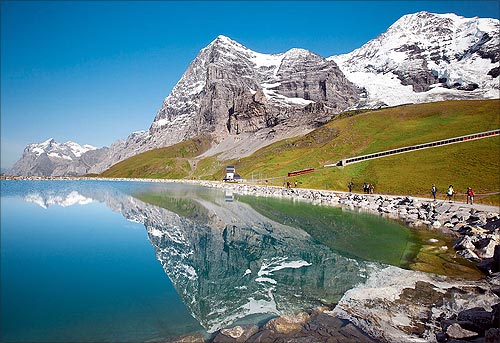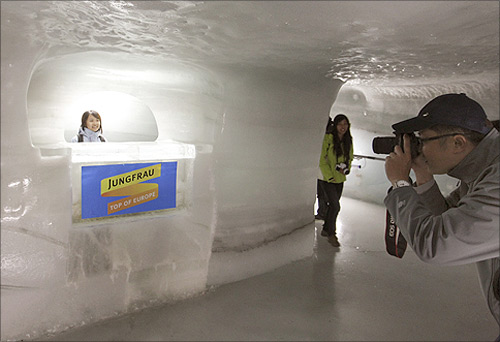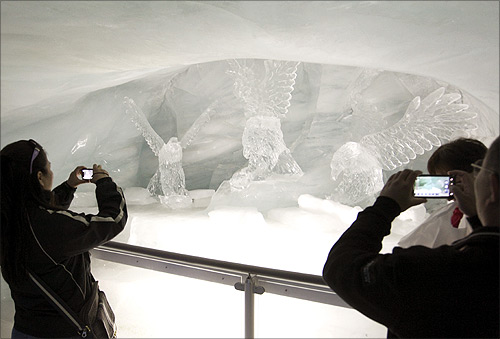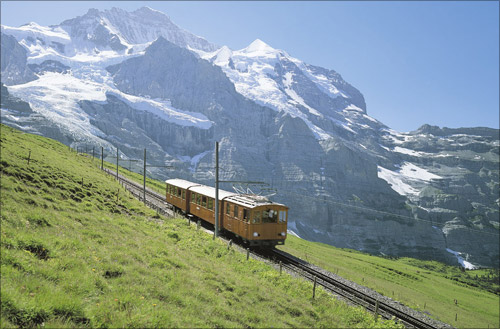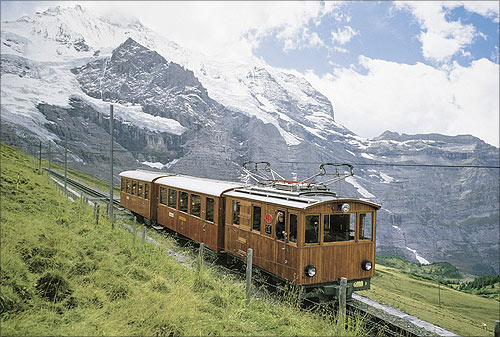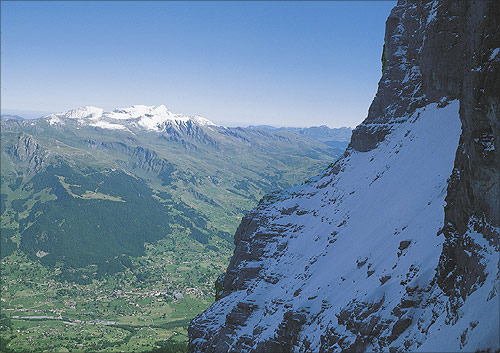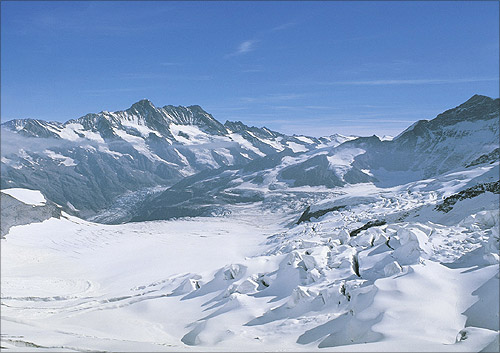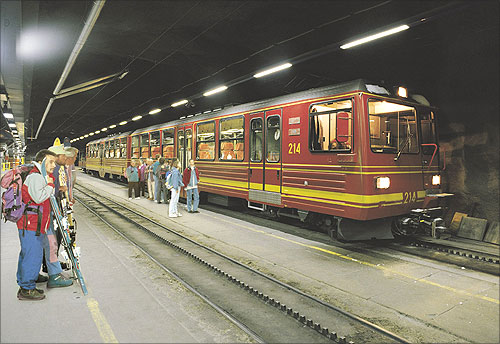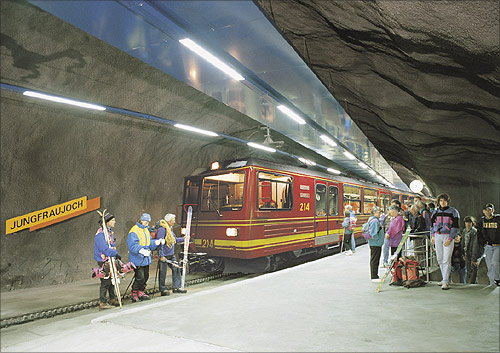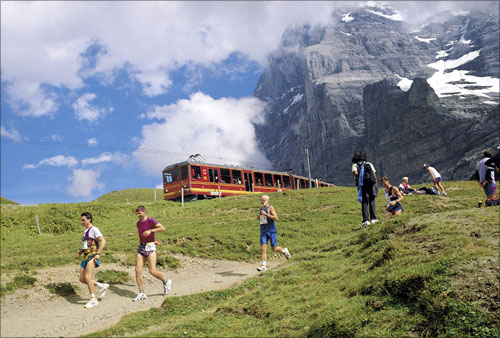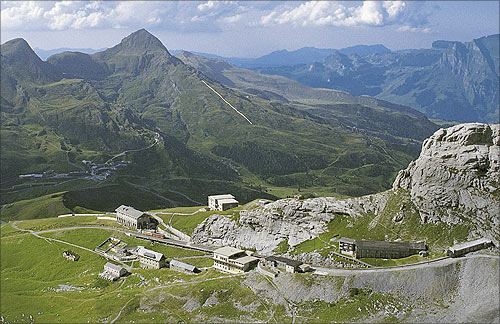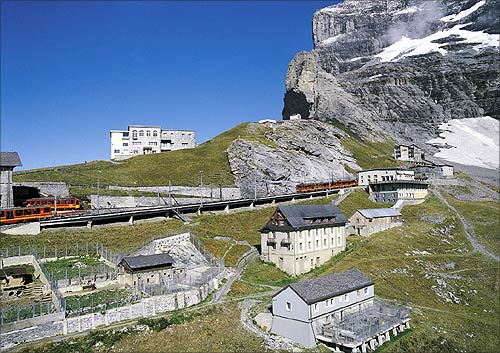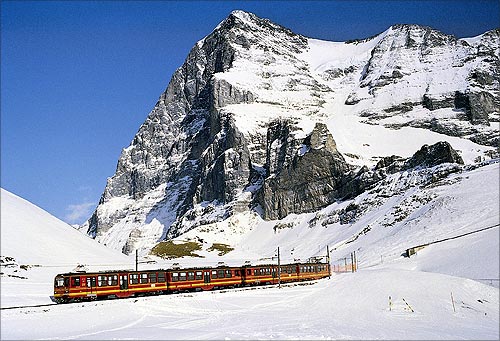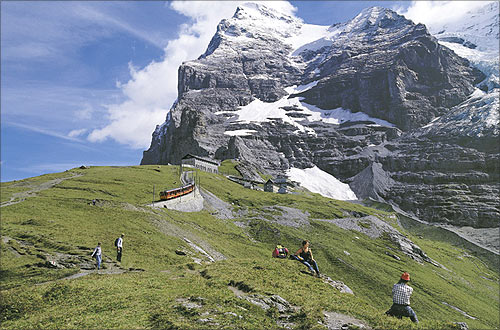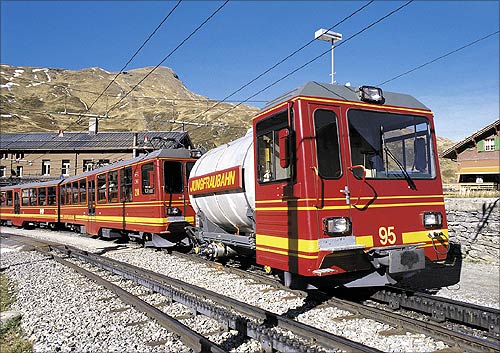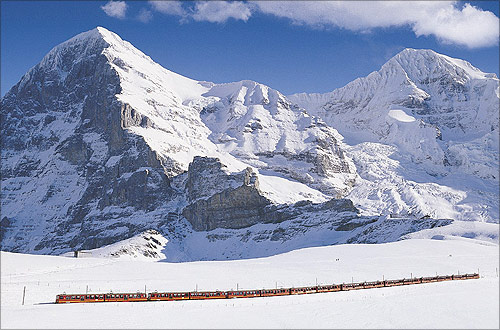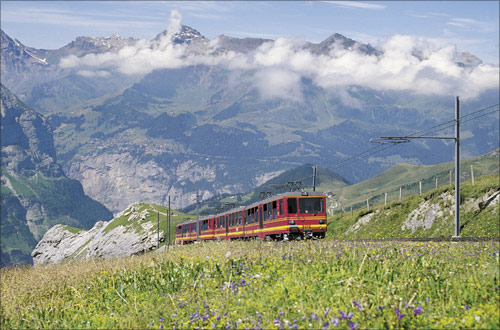 | « Back to article | Print this article |
The stunning Jungfrau Railway completes 100 years
One of the world's most amazing railway projects, Jungfrau Railway completed 100 years on August 1.
Photographs, courtesy: Jungfrau Railway
Click NEXT to read more...
The stunning Jungfrau Railway completes 100 years
Europe's highest-altitude railway station was officially opened on August 1 1912. The Jungfrau Railway celebrated its centenary with a grand firework display.
Click NEXT to read more...
The stunning Jungfrau Railway completes 100 years
Forty-eight flares burned for five minutes on the north walls of the Eiger and Monch mountains to illustrate the route taken by the Jungfrau Railway.
Click NEXT to read more...
The stunning Jungfrau Railway completes 100 years
Visitors to the centenary celebrations followed the spectacle from beneath the Eiger North Wall.
Click NEXT to read more...
The stunning Jungfrau Railway completes 100 years
During their one-hundred-year history, the Jungfrau Railway and the Jungfraujoch have become tourism hotspots.
Click NEXT to read more...
The stunning Jungfrau Railway completes 100 years
Today, about 750,000 people visit Europe's highest-altitude railway station every year of whom more than 60 per cent come from Asia.
Click NEXT to read more...
The stunning Jungfrau Railway completes 100 years
The train which started operations in 1912 takes passengers from Kleine Scheidegg to the Jungfraujoch, Europe's highest-altitude railway station in a world of rock, ice and snow – at an altitude of 3,454 metres.
Click NEXT to read more...
The stunning Jungfrau Railway completes 100 years
The railway runs almost entirely within a tunnel built into the Eiger and Monch mountains.
It has two stations in the middle of the tunnel, where passengers can disembark to see the neighbouring mountains through the windows.
Click NEXT to read more...
The stunning Jungfrau Railway completes 100 years
Jungfraubahn Holding company operates the train service. Seven of the nine kilometres of railway are in a tunnel hewn in the rock of the Eiger and Monch.
Click NEXT to read more...
The stunning Jungfrau Railway completes 100 years
The train stops for five minutes at each of two intermediate stations, the Eigerwand (Eiger Wall) and Eismeer (Sea of Ice).
Click NEXT to read more...
The stunning Jungfrau Railway completes 100 years
The Jungfrau Railway climbs a height of 1,400 metres in 50 minutes.
Click NEXT to read more...
The stunning Jungfrau Railway completes 100 years
Jungfrau Railway has an illustrious history.
On 20 December1893, industrialist Adolf Guyer-Zeller applied for a concession to build a cogwheel railway from the station of the Wengernalp Railway (WAB) on Kleine Scheidegg to the summit of the Jungfrau via a long tunnel through the rock of the Eiger and Monch massif.
Click NEXT to read more...
The stunning Jungfrau Railway completes 100 years
Work on this mountainous region started on 27 July 1896, marking the start of Jungfrau Railway construction.
Click NEXT to read more...
The stunning Jungfrau Railway completes 100 years
After two years on 19 September 1898, the section in open terrain from Kleine Scheidegg station to the Eigergletscher (Eiger Glacier) station at the foot of the Eiger was put into service.
Click NEXT to read more...
The stunning Jungfrau Railway completes 100 years
Adolf Guyer-Zeller, the driving force behind the Jungfrau Railway died before the work was completed.
Guyer-Zeller's sons continued the construction. The Eigerwand station in the middle of the Eiger North Wall could be officially opened only by June 1903.
Click NEXT to read more...
The stunning Jungfrau Railway completes 100 years
Two years later, on 25 July 1905, it was possible to open the section to the stop at Eismeer, about 3,160 metres above sea level, offering stunning views of glaciers.
Click NEXT to read more...
The stunning Jungfrau Railway completes 100 years
The history of the construction of the Jungfrau Railway had its shares of ups and downs - blasting accidents, strikes and financial problems.
Click NEXT to read more...
The stunning Jungfrau Railway completes 100 years
It is noteworthy that the Eismeer to Jungfraujoch section first operated as an adhesion railway and then as a cogwheel system in the last section before the Jungfraujoch.
Click NEXT to read more...
The stunning Jungfrau Railway completes 100 years
Special locomotives for use with adhesion and cogwheel systems had to be acquired.
Click NEXT to read more...
The stunning Jungfrau Railway completes 100 years
In 1951, the entire railway was converted to a cogwheel system, simplifying operations.
